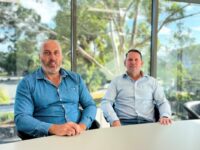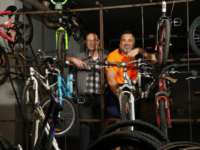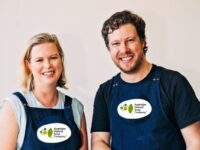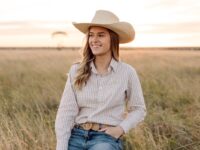This week we chat to Diana Scott, founder of Frontier Pets, a business that sells ethically-produced pet foods. Starting out in 2017 with 85 customers, Diana now has more than 8000, but a successful business is not her only goal – Diana is on a mission to put an end to factory farming.
ISB: What inspired you to take on the pet food market with Frontier Pets?
DS: My personal and business vision is to end factory farming. I realised that the pet food industry actually props up factory farming by using the off-cuts of industrialised animals. The pet food industry is worth $8 billion in Australia alone…that’s lots of factory-farmed animals. Frontier Pets uses only 100 per cent high-welfare ingredients including free-range meat and offal, eggs and organic fruit & veg.
ISB: What was the biggest challenge you faced in getting the enterprise off the ground?
DS: The biggest challenge was developing the “process”. I have not been in manufacturing in the past, so this was all new to me. I started by contracting a vet/animal nutritionist to develop the recipe, so that it was not just an ethical brand, but a biologically appropriate one as well. Then I developed a business case around my requirements and worked my way to the end production goal.
ISB: How did your experience working advertising agencies help in growing the brand?
DS: My background is in marketing and advertising so I understand how to get the right message to the right people. I contracted a video producer to create video content for me (which I used to launch the brand) and then garnered support from pet industry experts. I did seek the expertise of social media experts as this is not my strength. Social media now makes up most of my marketing spend.
ISB: I understand ethical farming is very important to you – please tell us why, and how that manifests itself in your day-to-day operations.
DS: I cannot abide the thought of animals being kept in cramped conditions and living their very short lives in absolute misery. Factory-farmed animals are pumped full of growth hormones and antibiotics. It’s not just cruel to the animal, the whole process contributes to the destruction of the environment. We have notices throughout our two buildings that say end factory farming. Everyone knows that is why we are here and there is no compromise on the product we buy. Every few weeks I also add up our financial contribution to ethical farming and publish it.
ISB: What is your vision for the venture in the next couple of years?
DS: Our target is to contribute $2.5 million toward ethical farming in this financial year. Double that for FY 21/22 and double it again for FY 22/23. We’re also in conversations with like-minded organisations in Australia and around the world, looking for ways we can change labelling laws – so that people know exactly what they’re buying – and “converting” factory farmers into free-range farmers. That is our big dream.
ISB: Finally, what is the number one lesson you’ve learnt on this journey you’d share with others looking to start their own business?
DS: When I completed my business case I figured it would cost me $50,000 and three months to pull it off. It took three years, all of my superannuation and my house – about $700,000 in total. The passion and desire I had to do this blinded me to the reality of the sheer amount of work and money that I had to put into its success. I don’t regret it at all, but with hindsight I would have sought more industry expertise.
















